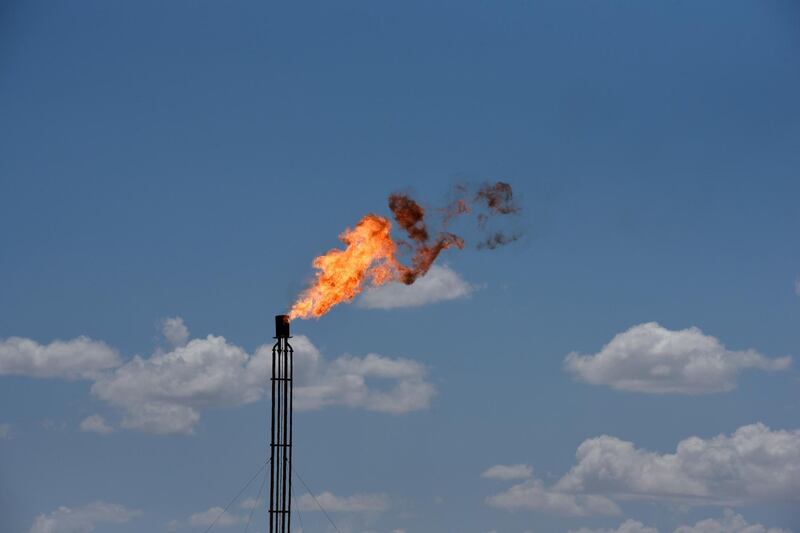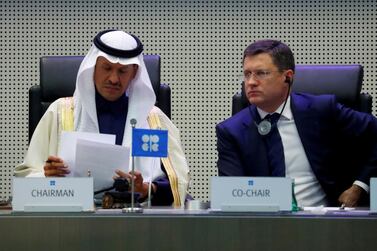Oil prices gained on Tuesday as US shale companies come under pressure ahead of a meeting of Opec+ and other producers later this week to consider a broader pact that may shave off 15 per cent of current global production.
The historic meeting on Thursday could include the US - the world's largest oil producer - for the first time in any kind of output restriction discussion, though its unclear how an agreement would comply with American antitrust laws. US President Donald Trump who first brokered a thaw in relations between Moscow and Riyadh, which led to crude futures rallying 30 per cent last week, has since backpedaled on his comments.
“Nobody’s asked me,” Mr Trump said when asked about US involvement in a global production cut deal. “If they ask me I’ll make a decision,” he told reporters.
He said supply and demand would determine whether US producers cut back supply, hinting they may not join directly in implementing cuts. However, US energy secretary Dan Brouillette said he had a "productive discussion" with Saudi energy minister Prince Abdulaziz bin Salman. The US is likely to discuss the oil markets at a meeting of G20 energy ministers on Friday.
Mr Trump has been pushing for a global deal that could see a reduction of between 10 million barrels per day to 15m bpd in order to stabilise prices that have fallen by 70 per cent of their value from their most recent peak in January.
Brent, the international crude benchmark was up 2.3 per cent trading at $33.81 per barrel at 2.53pm UAE time, while West Texas Intermediate, which tracks North American crude grades was up 2.95 per cent at $26.85 per barrel.
"Oil markets started the week on a softer footing as the focus remains on an Opec+ meeting scheduled to take place on Thursday," Emirates NBD Mena research head Khatija Haque said in a note.
"While prices have rallied from recent lows they still remain at distressed levels, offering few economic benefits to producers like Saudi Arabia or Russia, and eviscerating the US shale patch," she added.
Gulf producers such as the UAE, Kuwait, and Iraq have already backed Riyadh's calls for cuts, with Baghdad insisting that producers outside the alliance such as Norway, Canada, and the US also join the pact.
A 15m bpd production cut, which would be more than 8 times larger than the curbs endorsed by the Opec+ alliance in December looks like "a very effective balancing tool," JBC Energy said in a note on Tuesday.
The consultancy said that a cut of this magnitude could be effective as end-user demand for crude is expected to slide by an average of 18.5m bpd.
Refinery crude runs are also expected to fall by 16.5m bpd with crude stockpiles expected to increase following an earlier pledge by some producers to bring on more supply.
"The key task would be to prevent further inventory builds post-April and to create a credible path for lowering them going forward so that prices in the $40 range are actually fundamentally justifiable," the report said.
Commodities pricing firm Argus earlier estimated that production cuts of 10m bpd, spread over the second quarter of 2020, and further cuts of 5m bpd in the third quarter would be needed to prevent global storage capacity becoming overrun with supply.
Around 20 million bpd is likely to flow into storage in April, according to investment bank Goldman Sachs. The bank also forecasts global consumption for crude will fall by a quarter as social distancing and lockdown measures impact 92 per cent of the world's gross domestic product.








